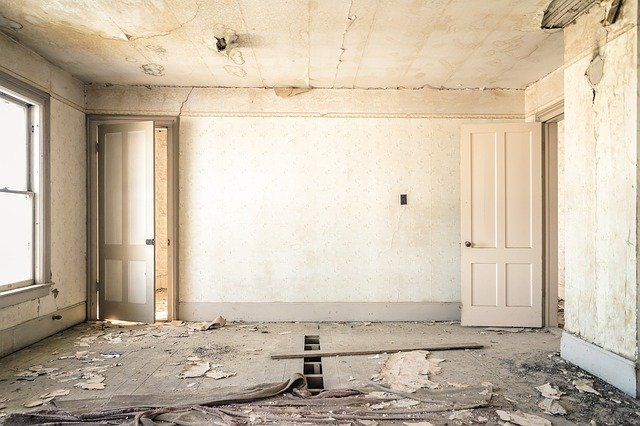Illinois Security Deposit Laws
Key Takeaways
- Permitted Reasons for Withholding: Landlords may withhold all or part of a tenant’s security deposit for specific reasons — notably, for unpaid rent, cleaning or repair fees after the lease ends, unpaid utilities, or reasonable legal fees if there’s a lease breach.
- Return Timeline & Itemized Deductions: After a tenant vacates a unit, the landlord has up to 45 days to return the deposit (if there are no deductions). If deductions are made, the landlord must send a written notice with an itemized statement of all deductions, including either estimated or actual costs, supported by paid receipts.
- Transfer & Interest Requirements: When a property is sold, a landlord must transfer the security deposit (plus accrued interest, minus any deductions) to the new owner, and notify tenants. Also, under Chicago law the landlord must hold the deposit in an account that earns interest, and pay the interest on security deposits to the tenants at prescribed intervals.
Under the state's landlord-tenant law, landlords are permitted to collect deposits from tenants. A security deposit is the amount of money that a landlord requires a tenant to pay, in order to protect the unit from damages. A landlord typically requires a security deposit before tenants can occupy their rental home.
Security deposits serve as a safety net for an Illinois landlord. It is one way of shielding a landlord against a myriad of potential financial liabilities that may arise during a tenancy, including security deposit disputes, unpaid rent, or non-payment of other charges and fees. Without a proper deposit in place, landlords may struggle to recover the costs of damage beyond normal wear and tear, as outlined by the state's landlord-tenant law.
When a tenant signs a lease to live in your apartment unit, they must agree to abide by all terms of the lease agreement. Sadly, sometimes tenants become unable to afford their monthly payment, or they can cause excessive damage.
If a landlord fails to address these issues, it could lead to security deposits being insufficient to cover the costs, leaving landlords at a disadvantage.
To protect against this, landlords may want to ensure they collect the maximum security deposit allowed by law, helping to mitigate potential losses.
Additionally, it's important to ensure that the tenant pays rent on time and consistently, as this can help prevent situations where the security deposit may not be enough to cover outstanding payments or fees. Finally, providing an itemized statement of any deductions from the security deposit after a tenant moves out can help maintain transparency and avoid legal disputes.
In such security deposit cases, an Illinois landlord may be able to use part or all of the tenant’s security deposit to offset the financial ruin. However, an Illinois security deposit comes with a number of associated rules and regulations based on Illinois law, which is one reason why many landlords enlist the help of an experienced property management company.
In this piece we will go over important details regarding Illinois security deposit laws you must comply with as a landlord.
What You Need to Know About Illinois Security Deposit Laws
Illinois Security Deposit Limits
Some states have regulations that limit how much a landlord can charge for deposits. In neighboring Missouri, for example, security deposit law says a landlord can't collect more than two month's rent as a deposit. So, supposing a month's rent is $1000, then a landlord must not collect more than $2000 as a security deposit.
So what about Illinois? According to Illinois landlord-tenant laws, landlords aren’t limited by law to how much they can charge their tenants as a security deposit.
Even so, most landlords don’t charge tenants security deposits worth more than two months' rent. That’s because savvy landlords understand the importance of charging a reasonable security deposit and thus ensuring their rentals remain attractive to prospective tenants.
By keeping security deposits within a reasonable range, landlords can maintain a good relationship with tenants while still protecting their unit. Additionally, charging excessive security deposits could discourage tenants, potentially leaving properties vacant longer.
Normal Wear & Tear vs. Excessive Property Damage
Most leases or rental agreements require tenants to return their units in the same way they found them, beyond
normal wear and tear. But the exact definition is often a source of conflict between landlords and tenants when it comes to making deductions from security deposit funds.
A tenant may think that they have returned the apartment in good condition, but the landlord may disagree.
Illinois statutes don’t provide a definition of what normal wear and tear is. Nonetheless, normal wear and tear is generally defined as the gradual deterioration of a residence due to age.
For example, the gradual deterioration of paint or carpeting in a rental over time is considered normal wear and tear. Paint may begin to peel or fade, and carpets may become threadbare, even if a tenant has paid attention to maintaining the property.
As a landlord, any damage or repairs resulting from normal wear and tear are yours to pay for and repair. It’s important to keep receipts for any repairs paid for and to document the date the repairs were made. Providing dated receipts can help clarify what was paid and ensure transparency in case of disputes.
What about excessive property damage? This is damage that results from the negligent or careless use of the rental by a resident. In other words, damage that goes beyond normal wear and tear. A carpet worn from people walking on it is something you’ll expect, but what you shouldn't expect are holes or spills on the carpet.
In such cases, the renter is responsible for the actual costs of cleaning, replacing the carpet, and other relevant repair fees.
Rules for Storing Security Deposits
Illinois regulations say that the number of units landlords manage determines how you should store security deposit funds. Specifically, this is according to the Security Deposit Act (765 ILCS 715). Those with fewer than 25 units aren’t obligated to store a tenant’s deposit in any particular manner.
But, if Illinois landlords manage more than 25 units, then the landlord must store tenants' deposits in an interest-accruing account. Landlords may then pay security deposit interest at the same rate as that of the largest commercial bank in the state directly to the renter, or, if they don't pay it directly to the renter, credit it towards their rent.
The interest rate must be the same as the interest rate of the minimum deposit savings accounts by the largest commercial bank in Illinois.
An Illinois landlord, however, is not required to pay interest to a tenant who does not comply with the terms of their lease.
Reasons to Withhold a Tenant’s Security Deposit
Besides excessive damage to a dwelling unit, a landlord may also be able to make deductions or even withhold the entire security deposit in the following cases according to the Illinois security deposit laws:
- Unpaid rent by the tenant.
- Loss of rent money incurred as a result of the tenant abandoning the rental unit.
- Reasonable estimated cost of repairs or cleaning fees after a tenant's lease ends and the tenant vacates the unit.
- Unpaid utilities after a tenant vacates the rental unit.
- Additional costs associated with a breach of the lease or rental agreement such as reasonable attorney's fees and court fees.
Sale of the Apartment
So, what happens when the rental home changes hands? In Illinois, a landlord must transfer all renters’ security deposits (plus accrued interest) to the incoming landlord. The only exception to this is if the rental is being transferred to a party that has a lien on the residence.
The incoming landlord must post a notice on the “primary residence” of every tenant for whom they have received a deposit according to the Illinois Security Deposit Laws. The new landlord will have up to 21 days to do so after receipt of tenants’ deposits.
The written notice must include details such as:
- Name and address of the new landlord.
- Security deposit plus any interest accrued.
Illinois Law on Security Deposit Returns
Does your multi-family unit contain five or more units? If so, you’ll have two options when it comes to returning a security deposit. This is according to the Illinois Security Deposit Return Act.
If you're planning on making a deduction from the security deposit at the end of a lease, such as to cover unpaid rent, you’ll have a maximum of 30 days after the lease term ends to return the remaining portion of the security deposit to the tenant.
Landlords must then notify the tenant of their intention to withhold part of their deposit. In the notice, they must also include an itemized statement detailing reasons for withholding the deposit, as well as provide an itemized list of security deposit deductions and their estimated or actual cost per paid receipts.
If you're not deducting any amounts, then you’ll have up to 45 days after the end of the lease term to return the renters security deposit after the lease ends according to the Illinois Security Deposit Return Act. It is recommended that you deliver all notices to tenants in person where possible.
Obviously, you won’t need to provide the renter with a written notice or paid receipts by a specific date.
Failure to Return the Security Deposit
If a landlord fails to comply and refuses to return a security deposit to a tenant, it can end up costing them. According to Illinois landlord-tenant laws, if a landlord fails to provide their tenant with an itemized statement or receipt at the end of the lease, then the landlord must return the security deposit within 45 days or risk being taken to court.
And if you fail to do so, a court will probably rule that your actions are in bad faith. Consequently, as part of your court fees you may be liable to pay the tenant up to twice the amount of security deposit wrongly withheld.
Security Deposit Laws in Illinois: Summary
We hope this post has provided you, as a landlord, with valuable information regarding Illinois security deposit law, including how to store deposits, what deductions can be made, and how to create a secure lease. If you have further questions about Illinois' laws, would like help with local law and state law, or want a manager's assistance with landlord-tenant relationships, our team at MTD Property Management can help.
Disclaimer: The information herein is only educational and not legal advice. For expert help, please consider hiring a licensed attorney or knowledgeable management company.













